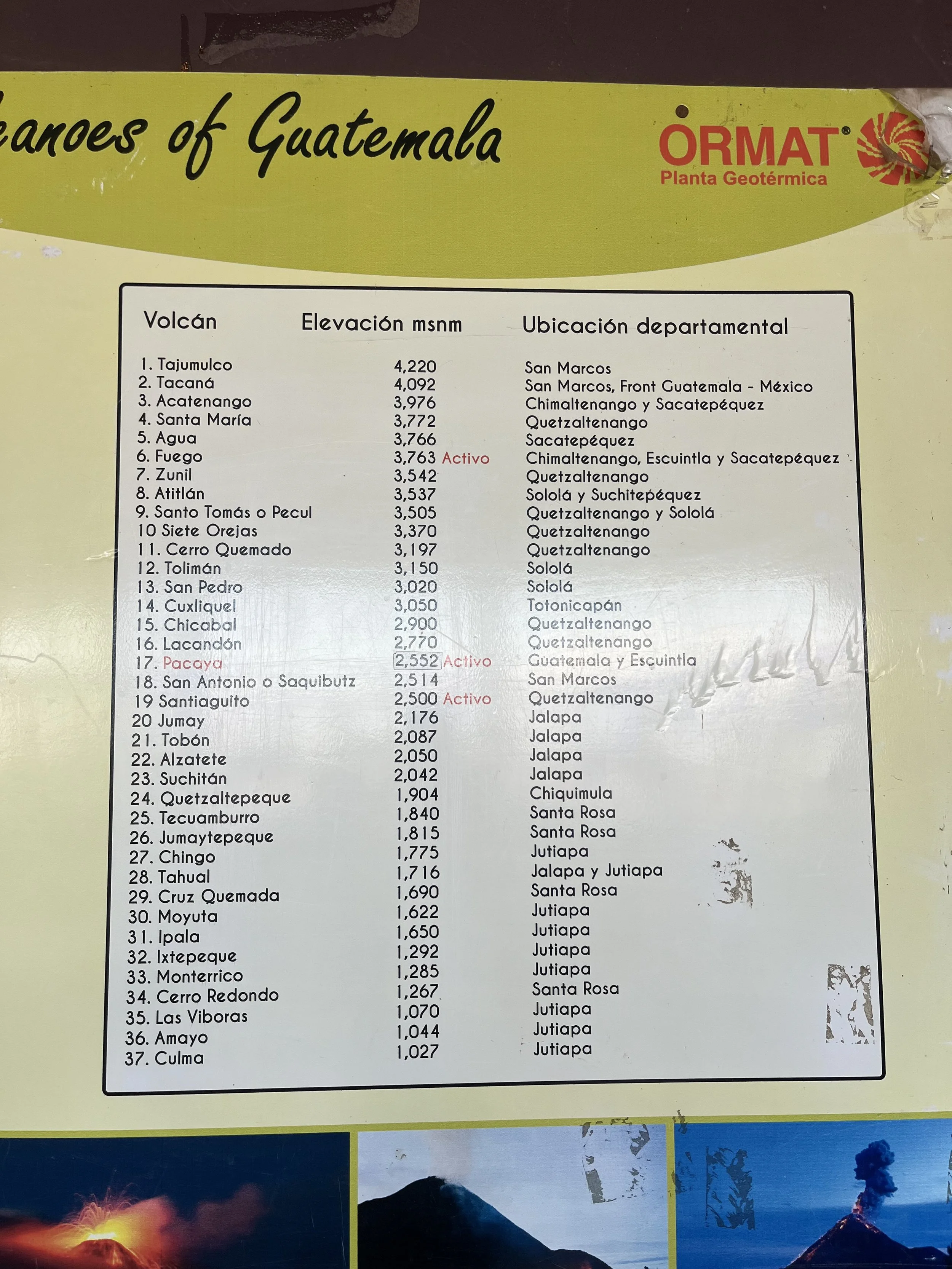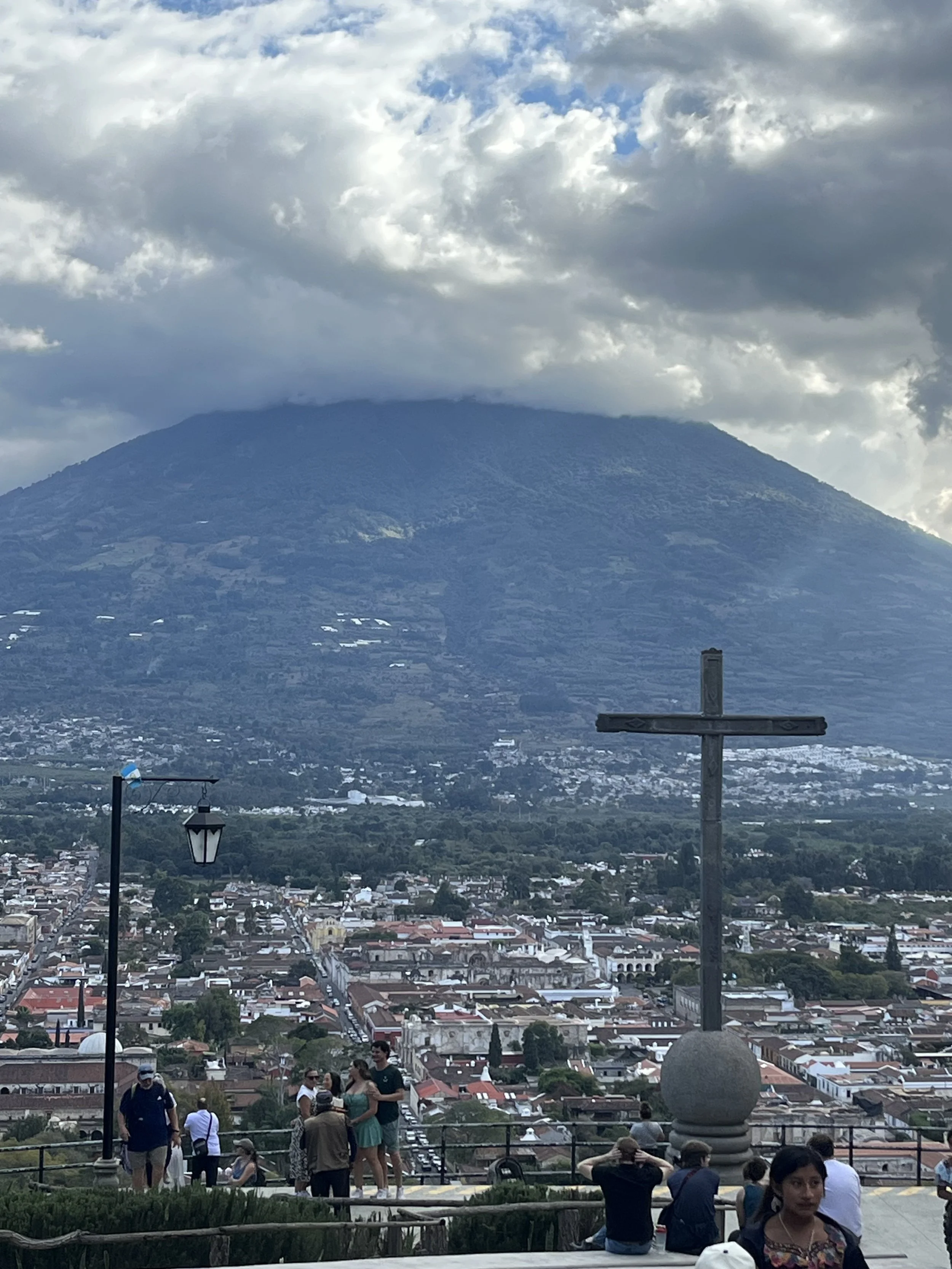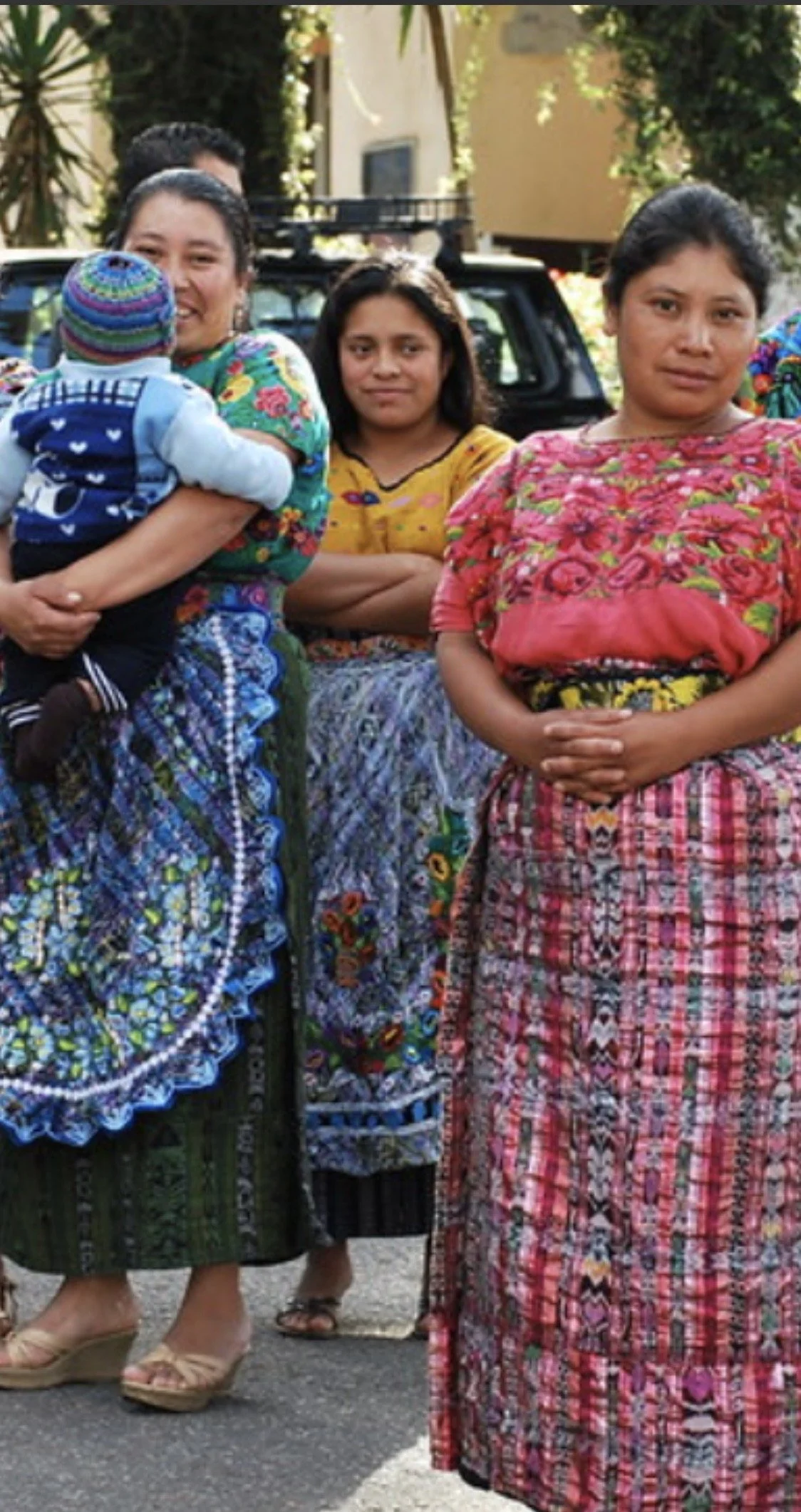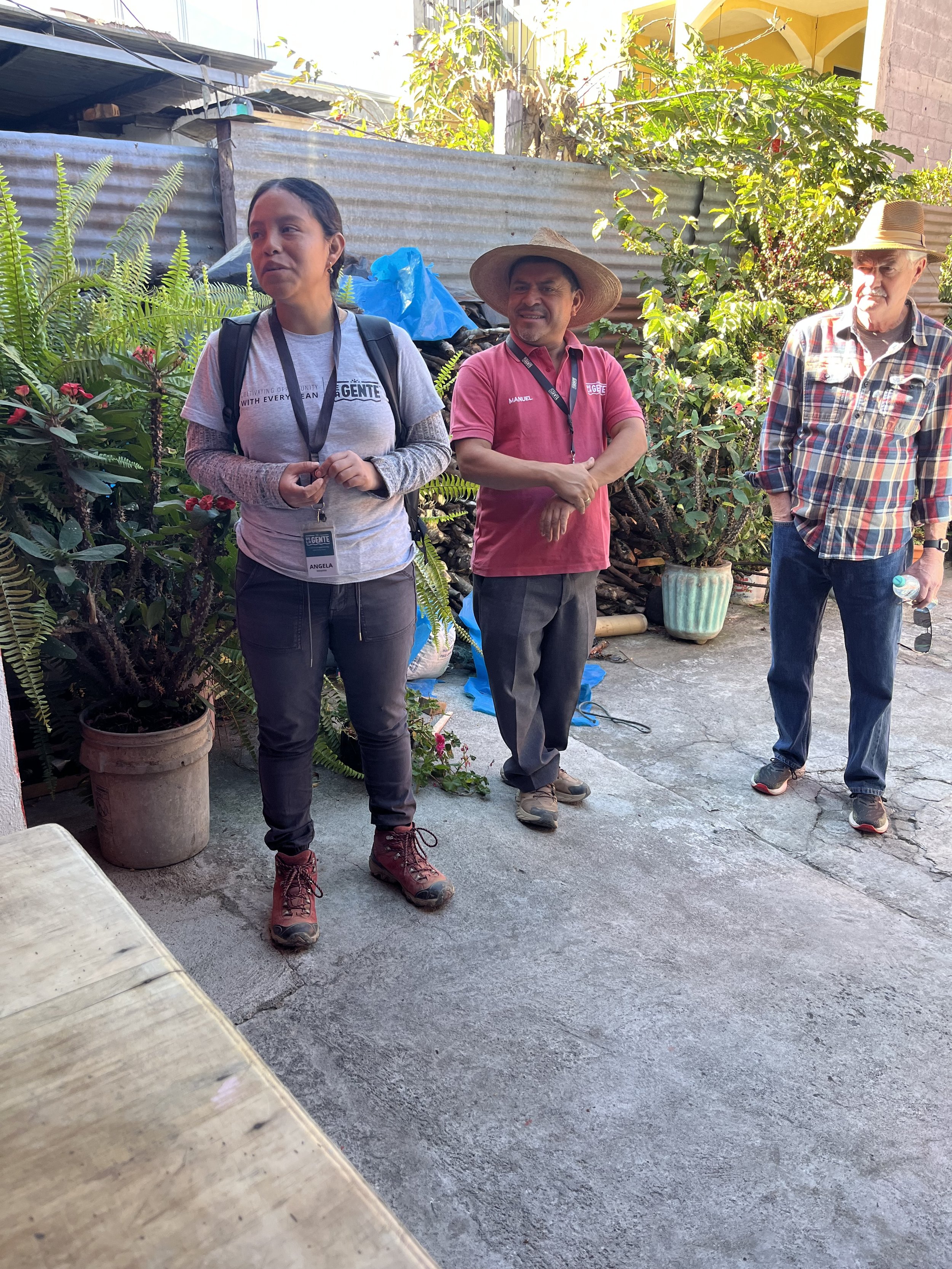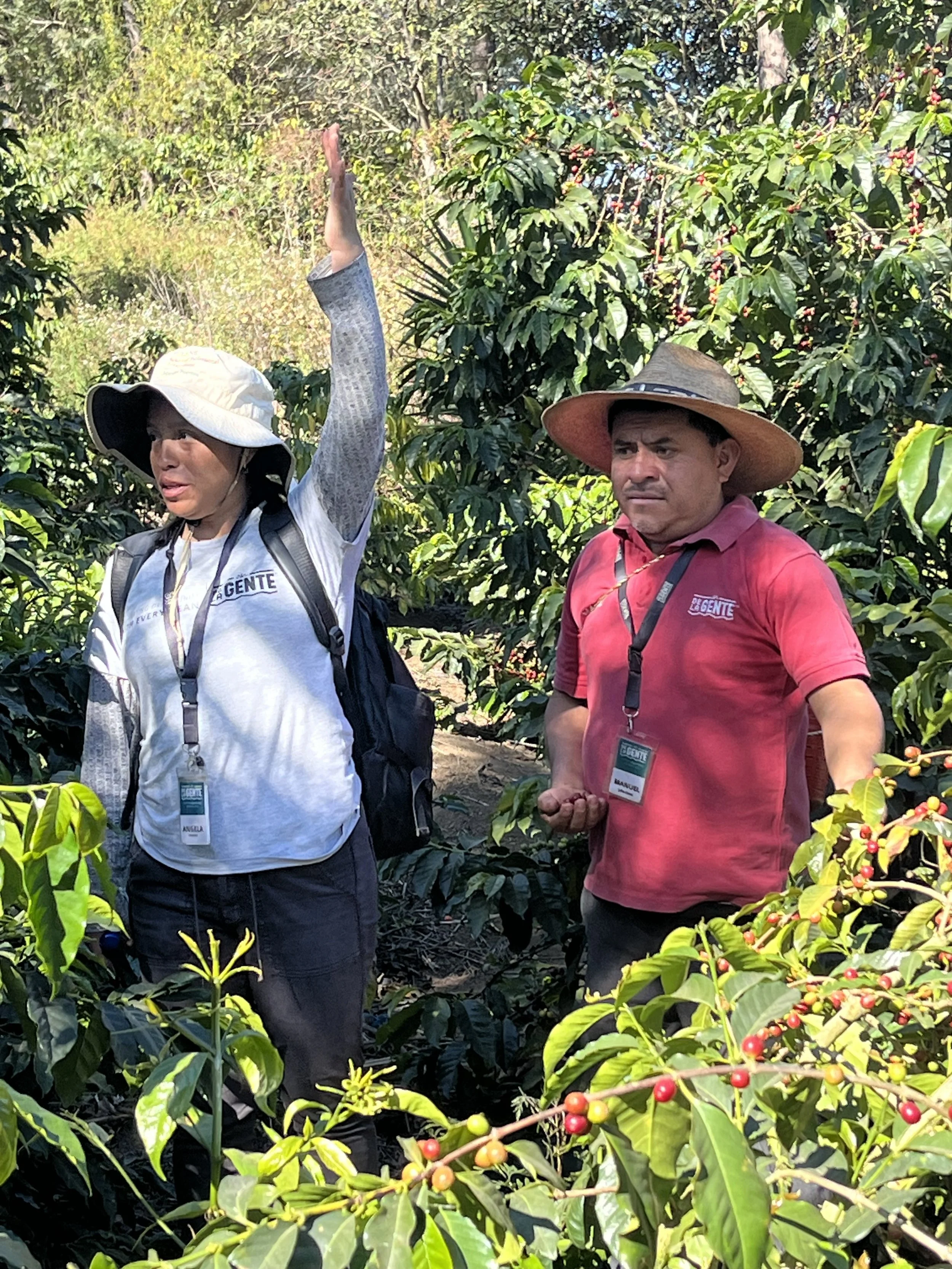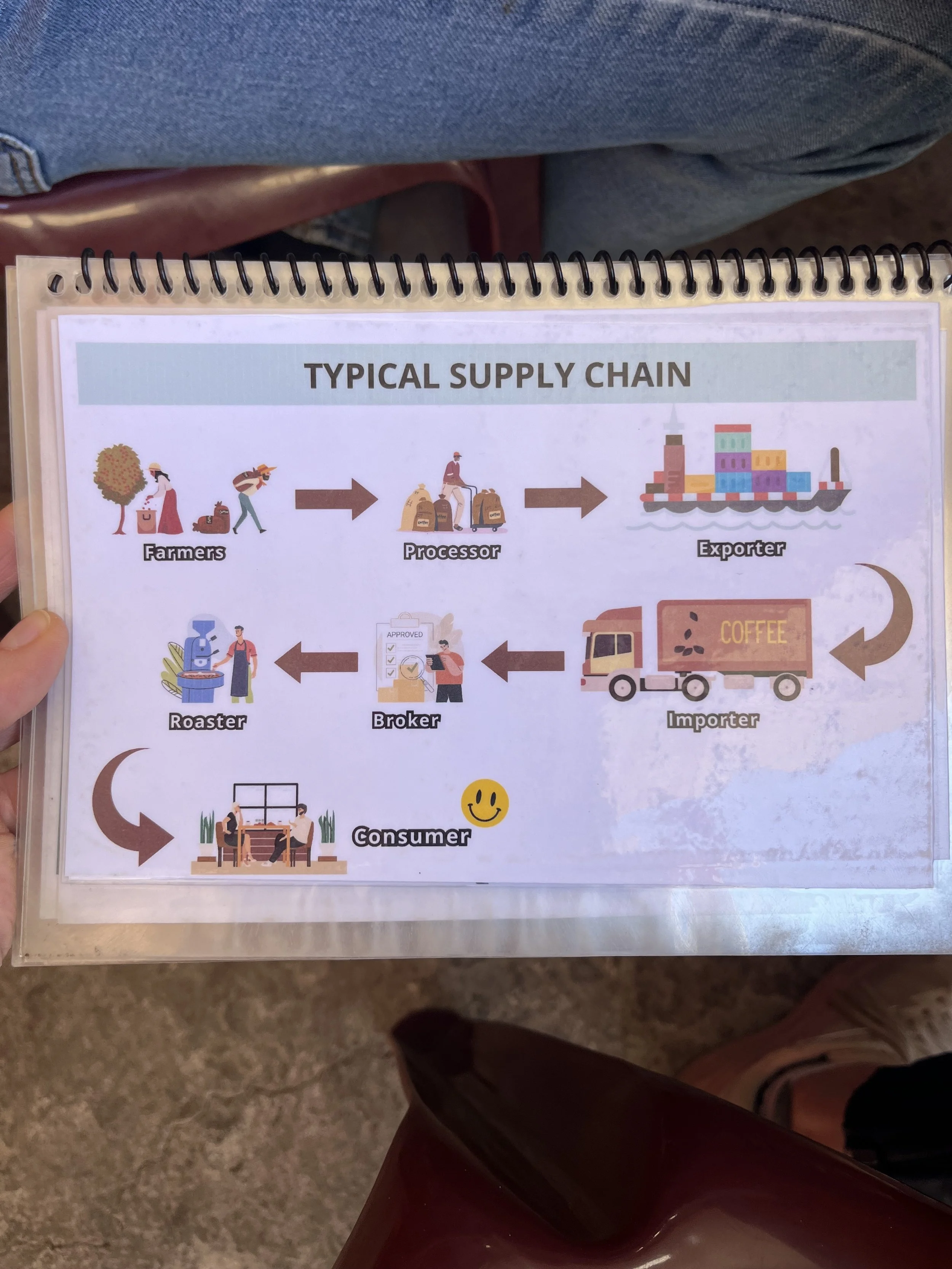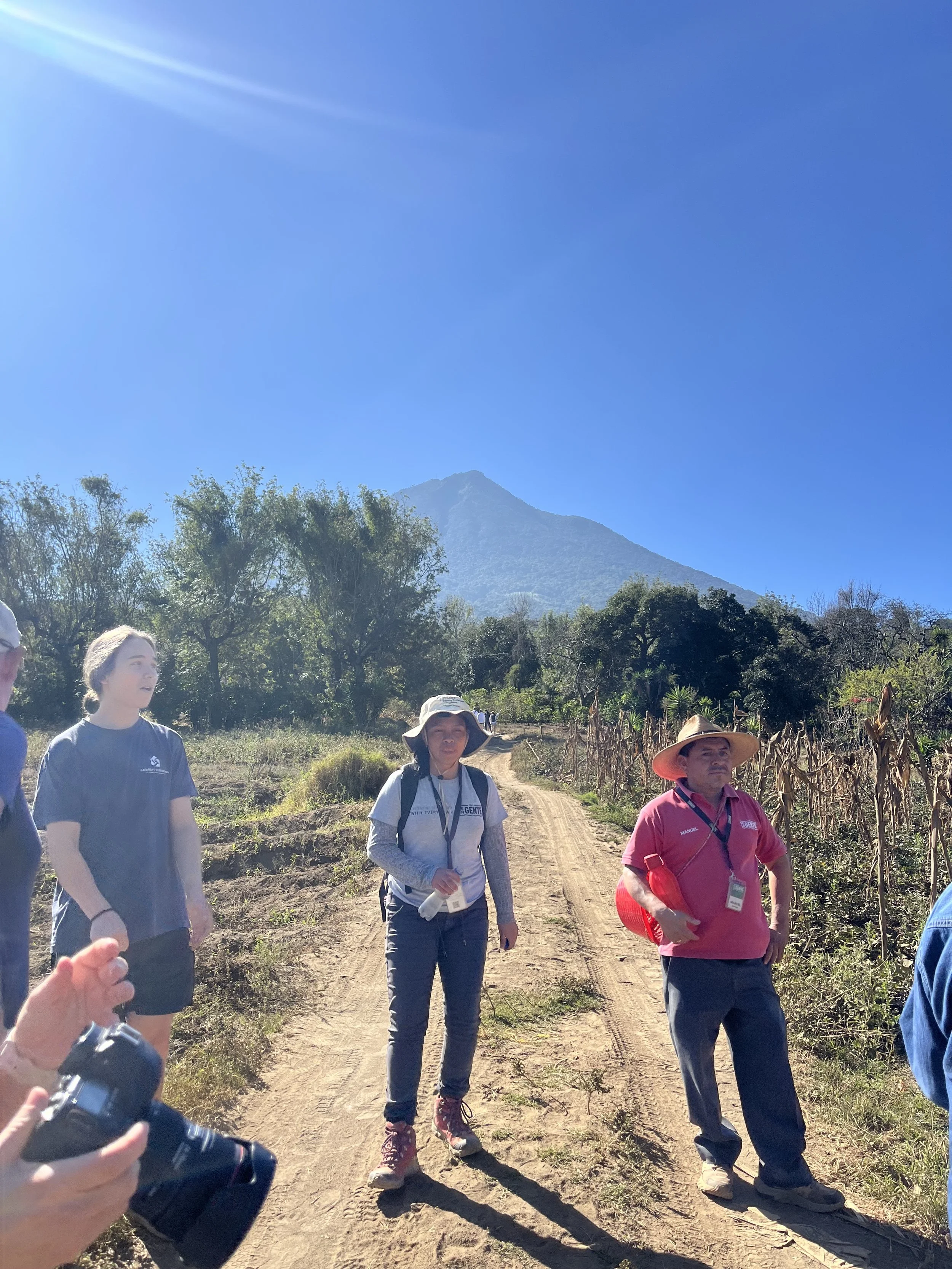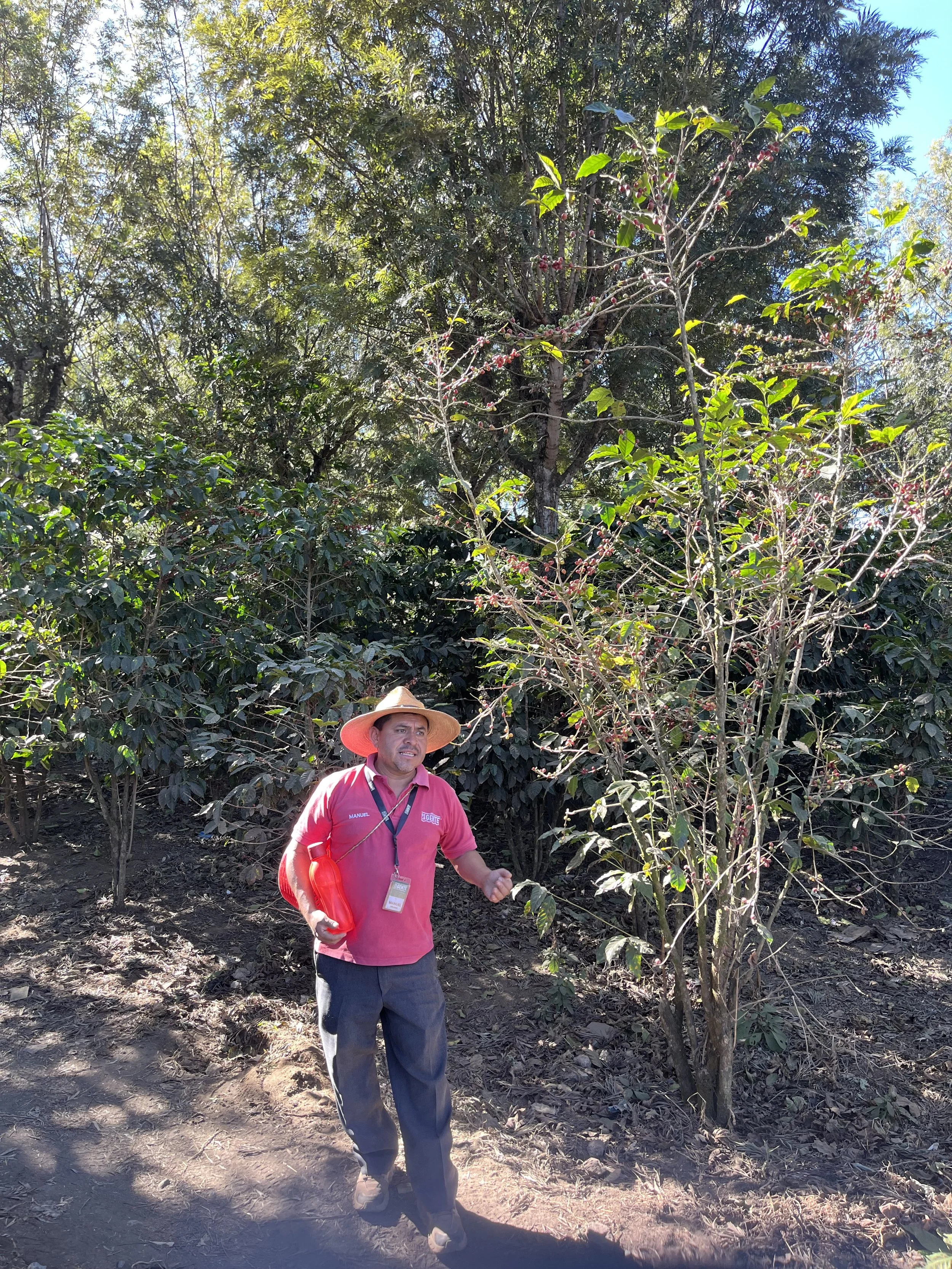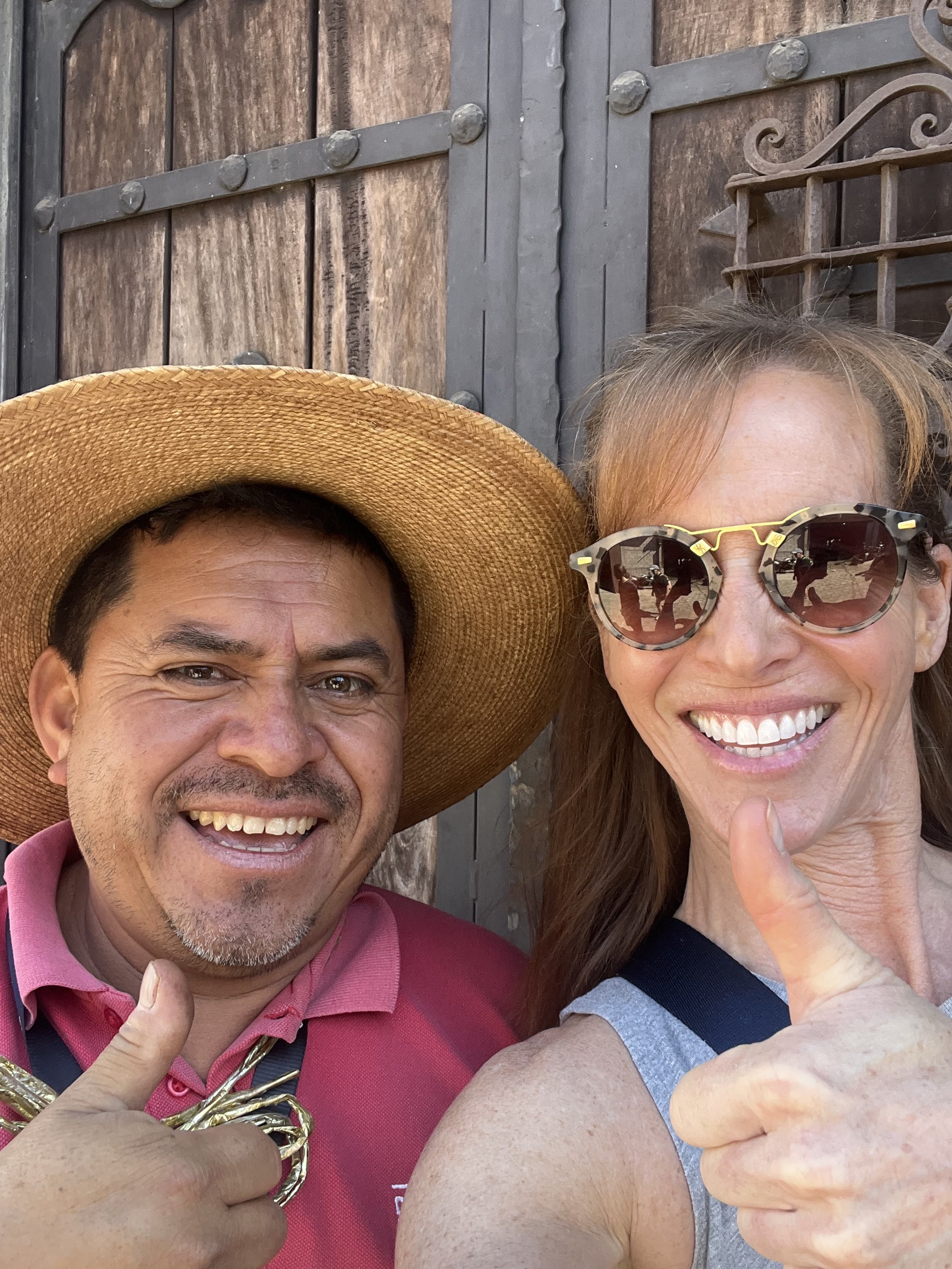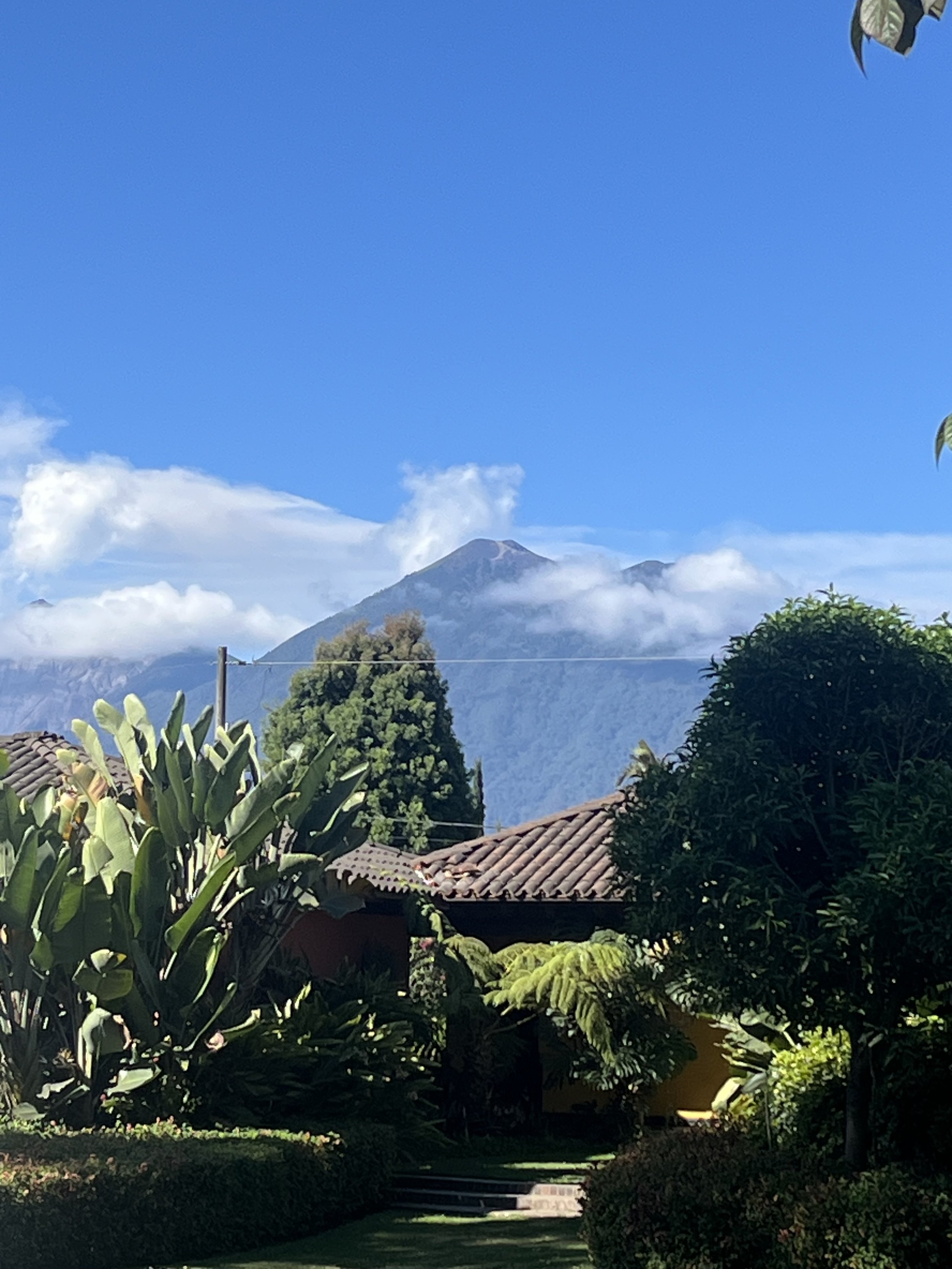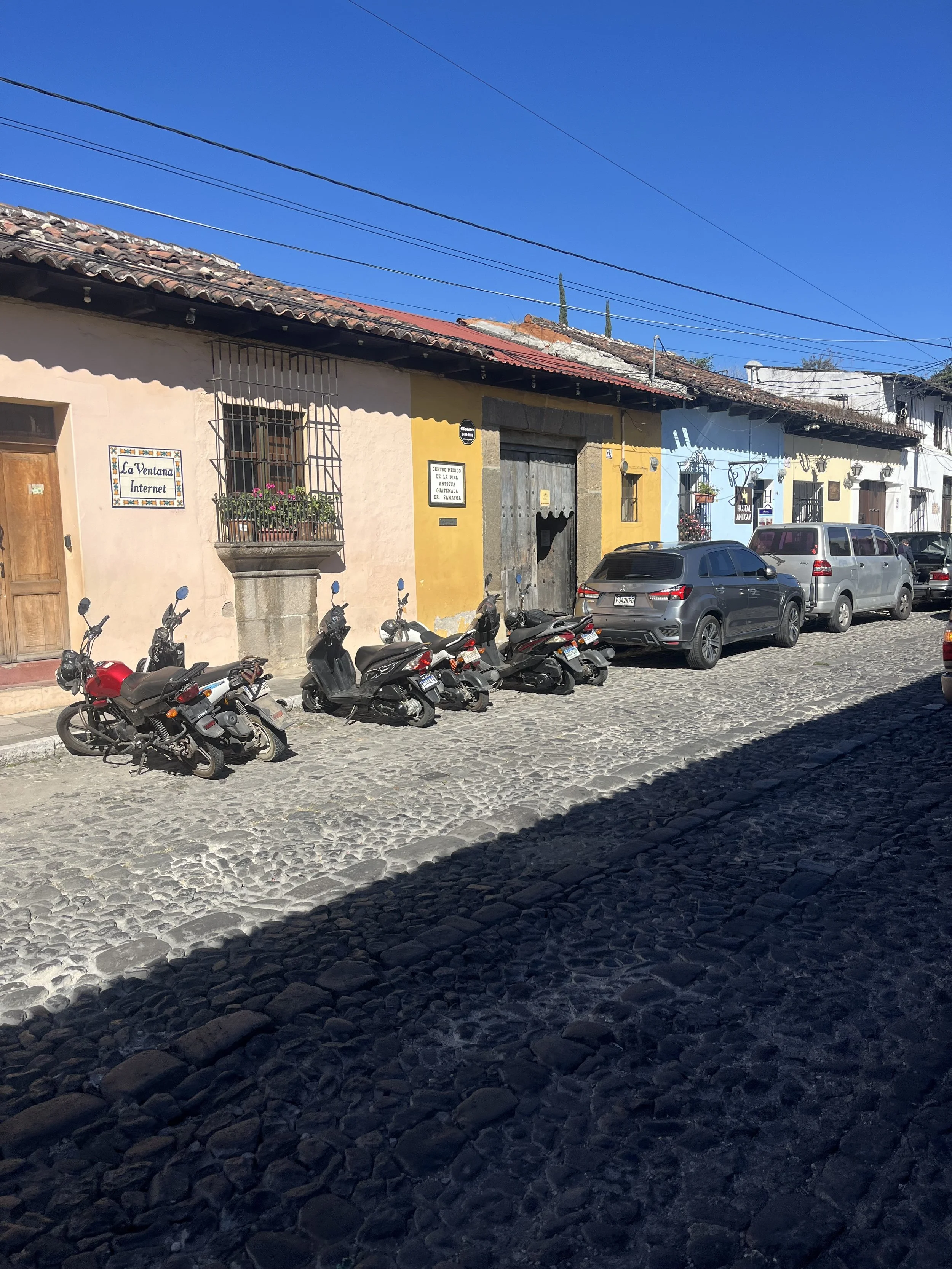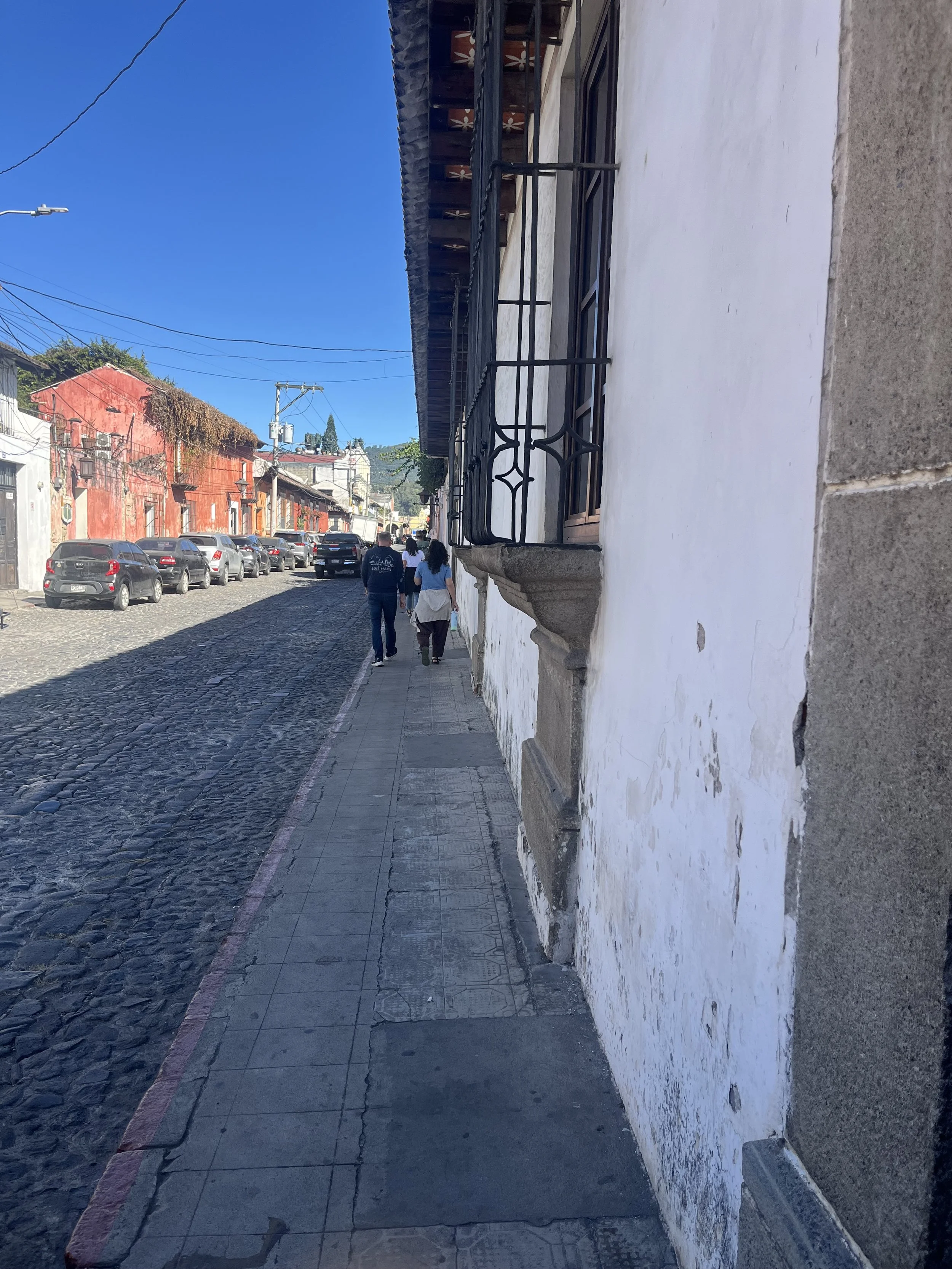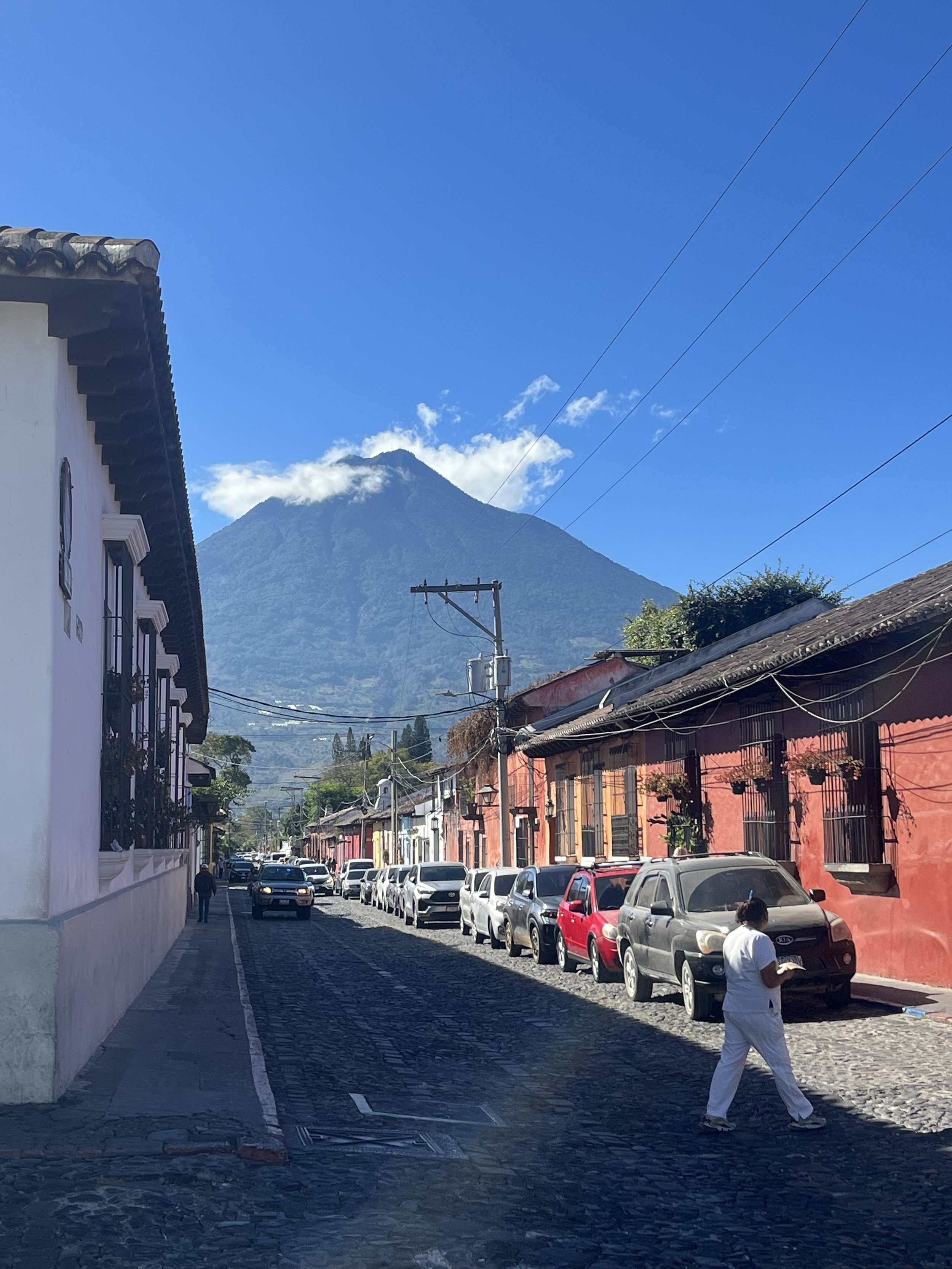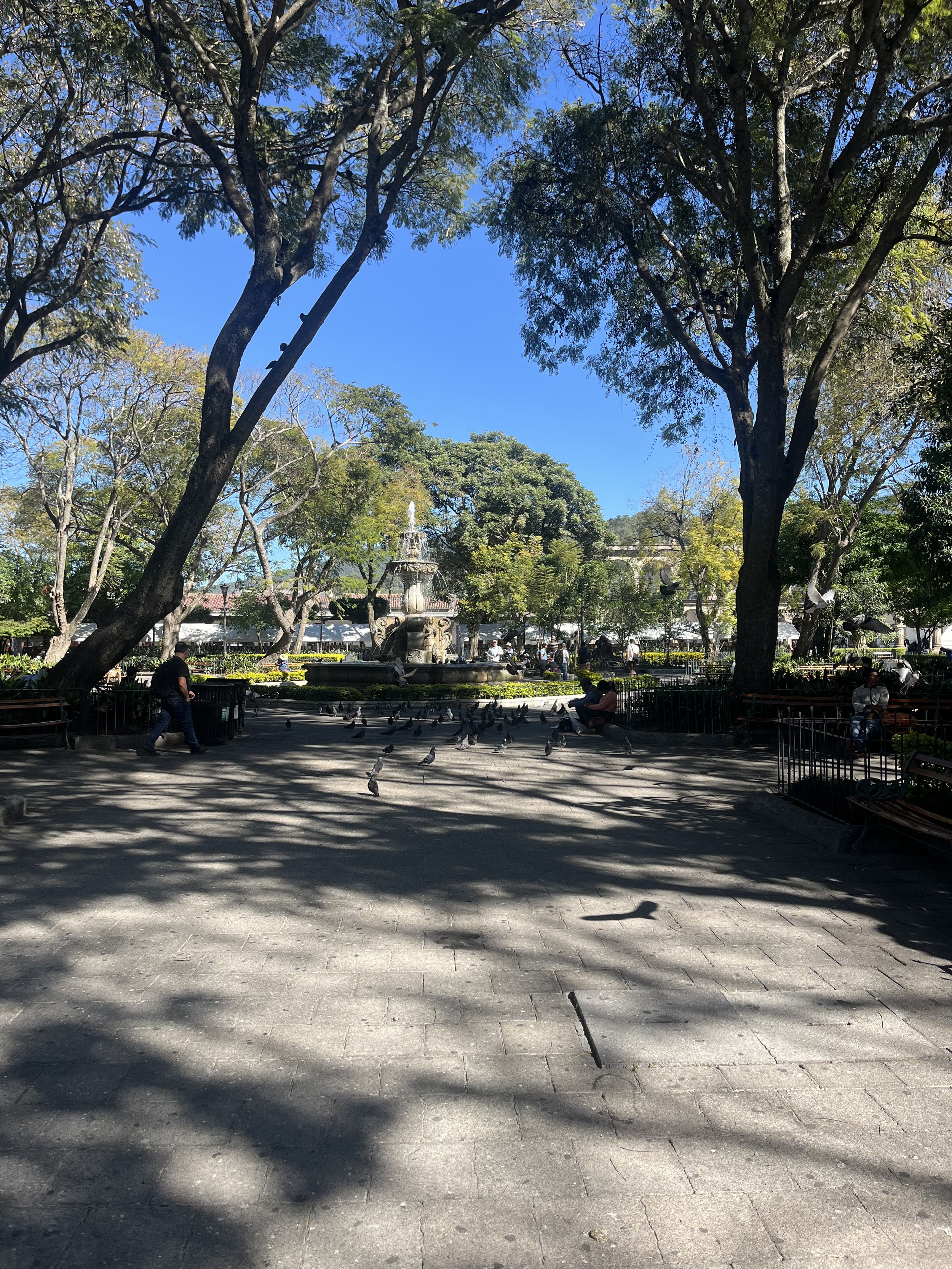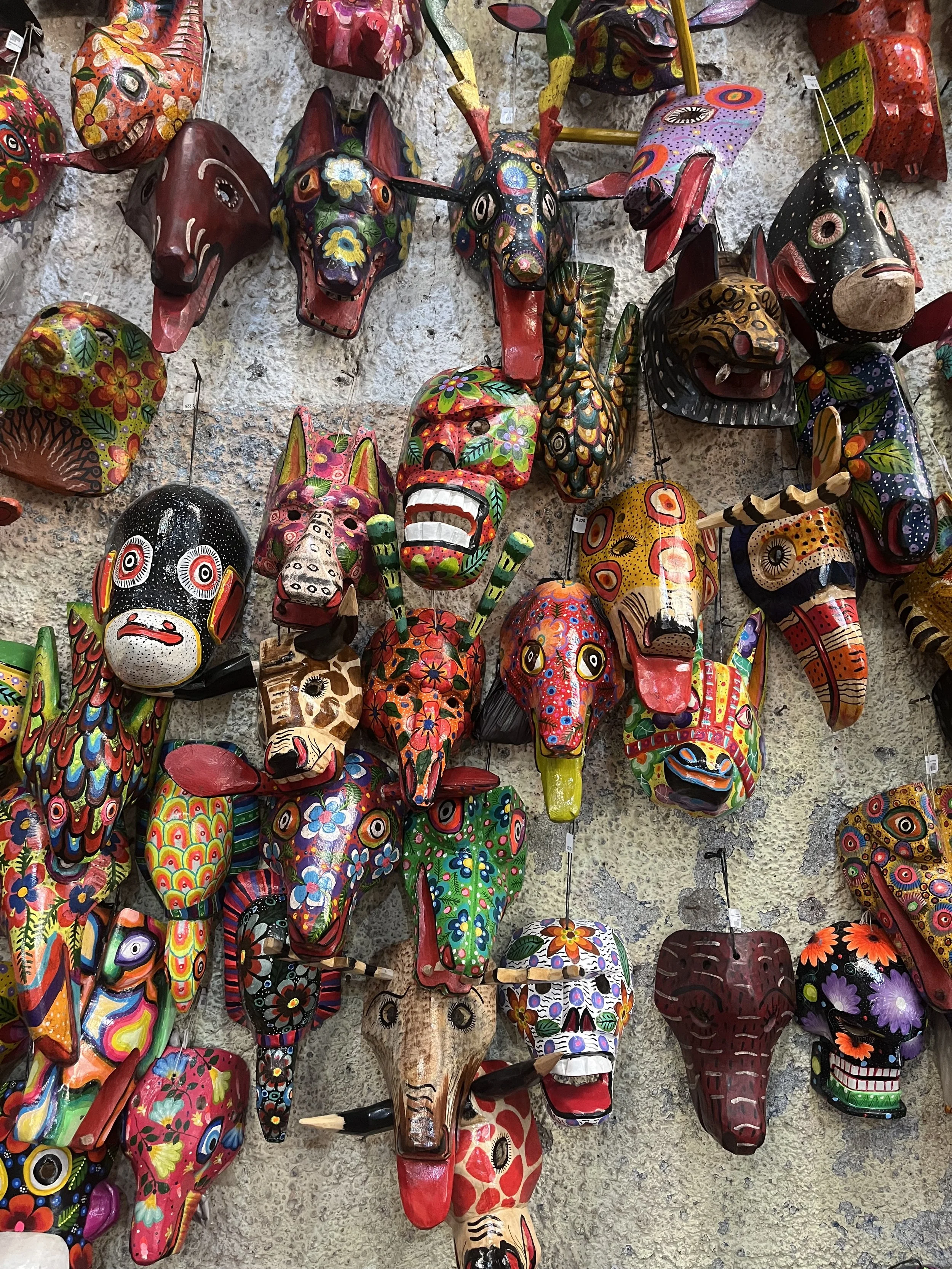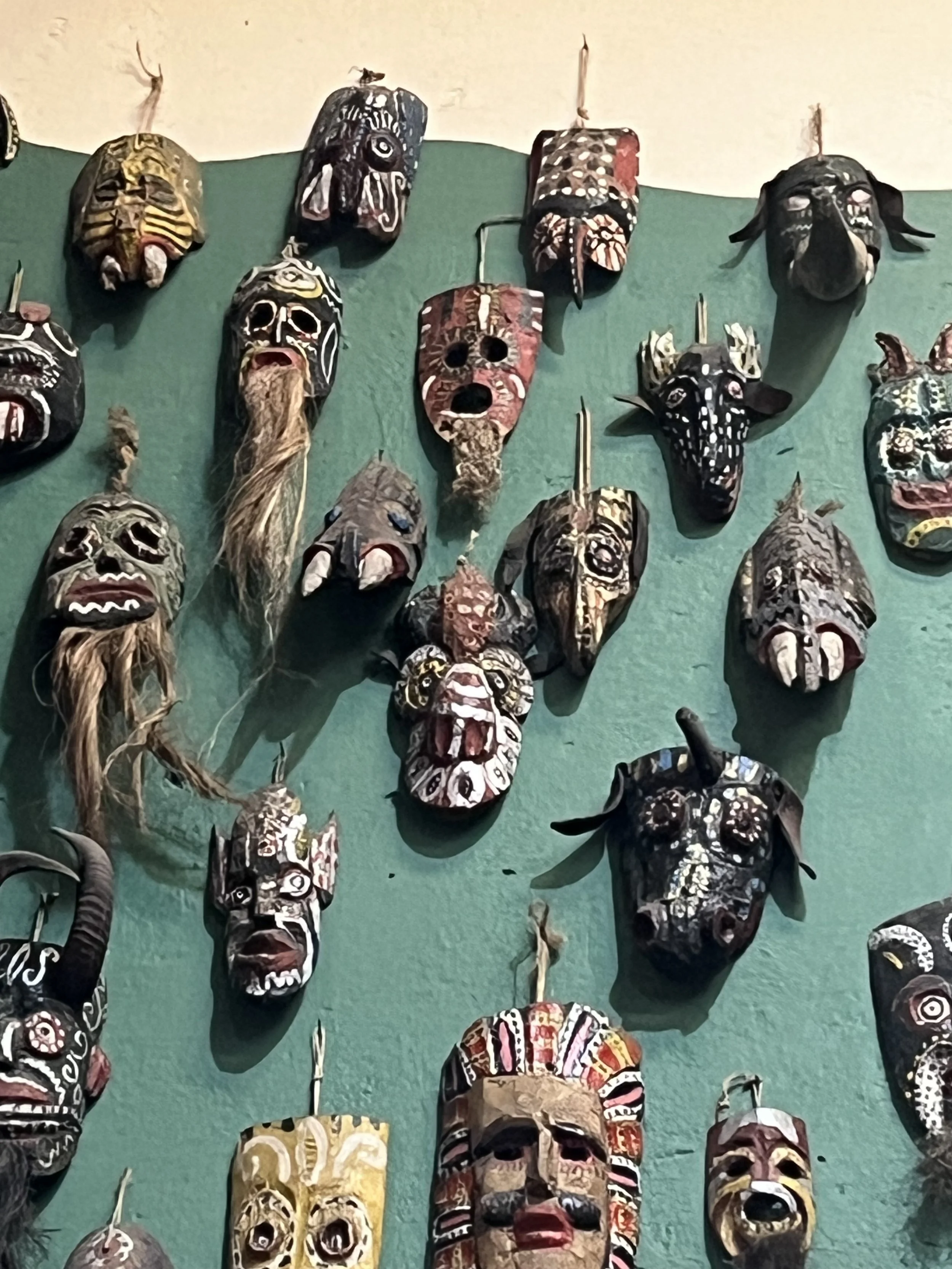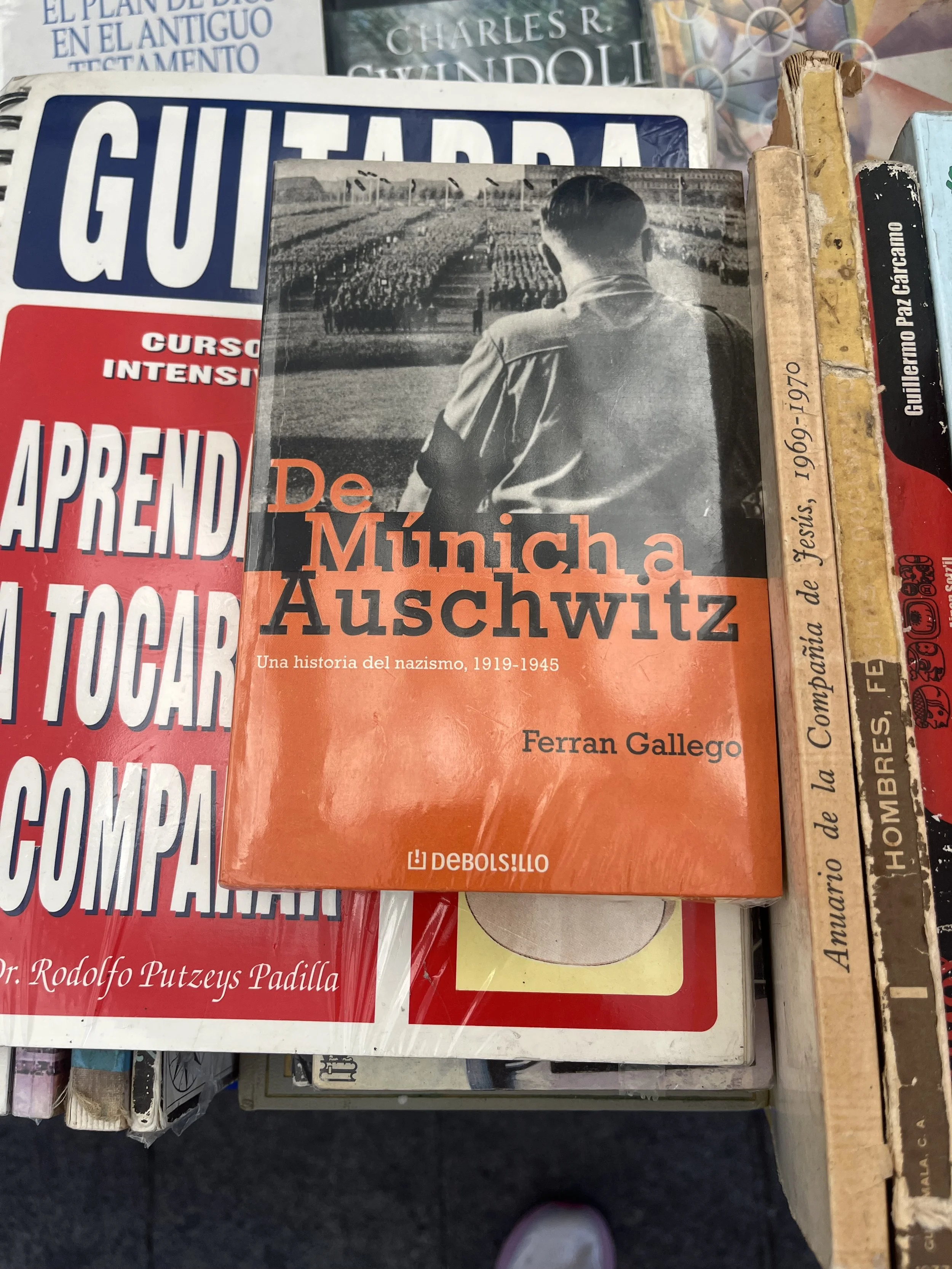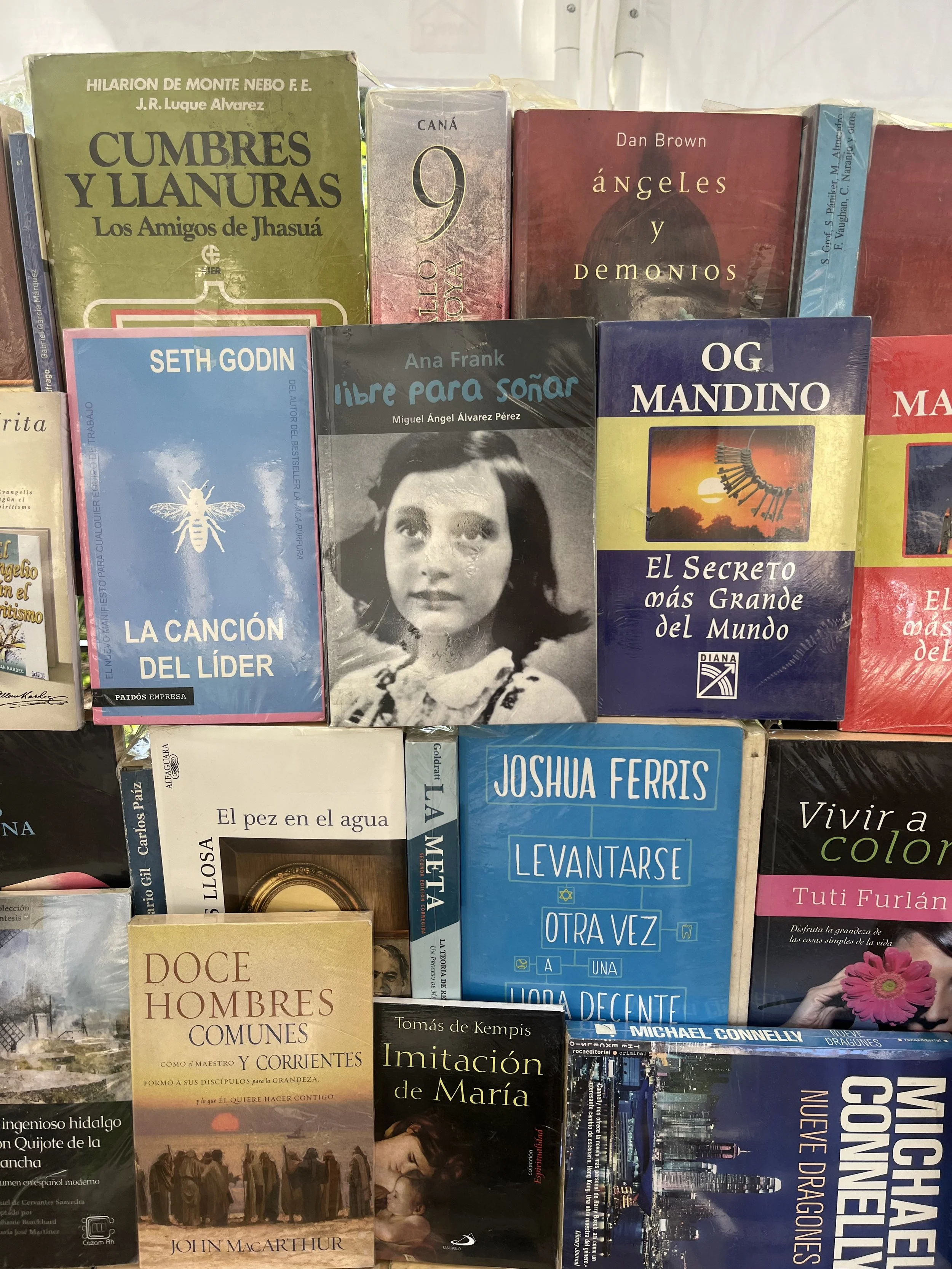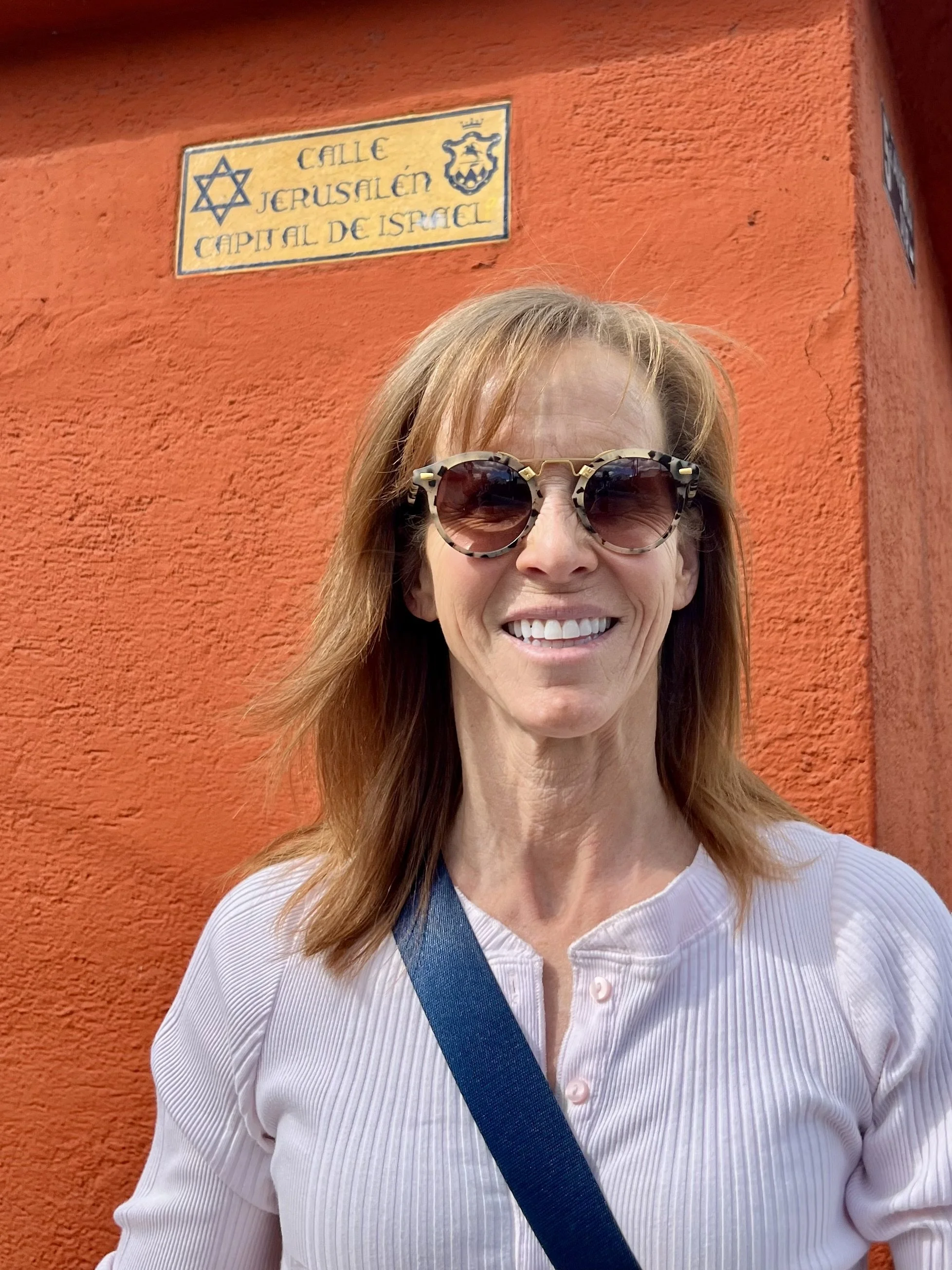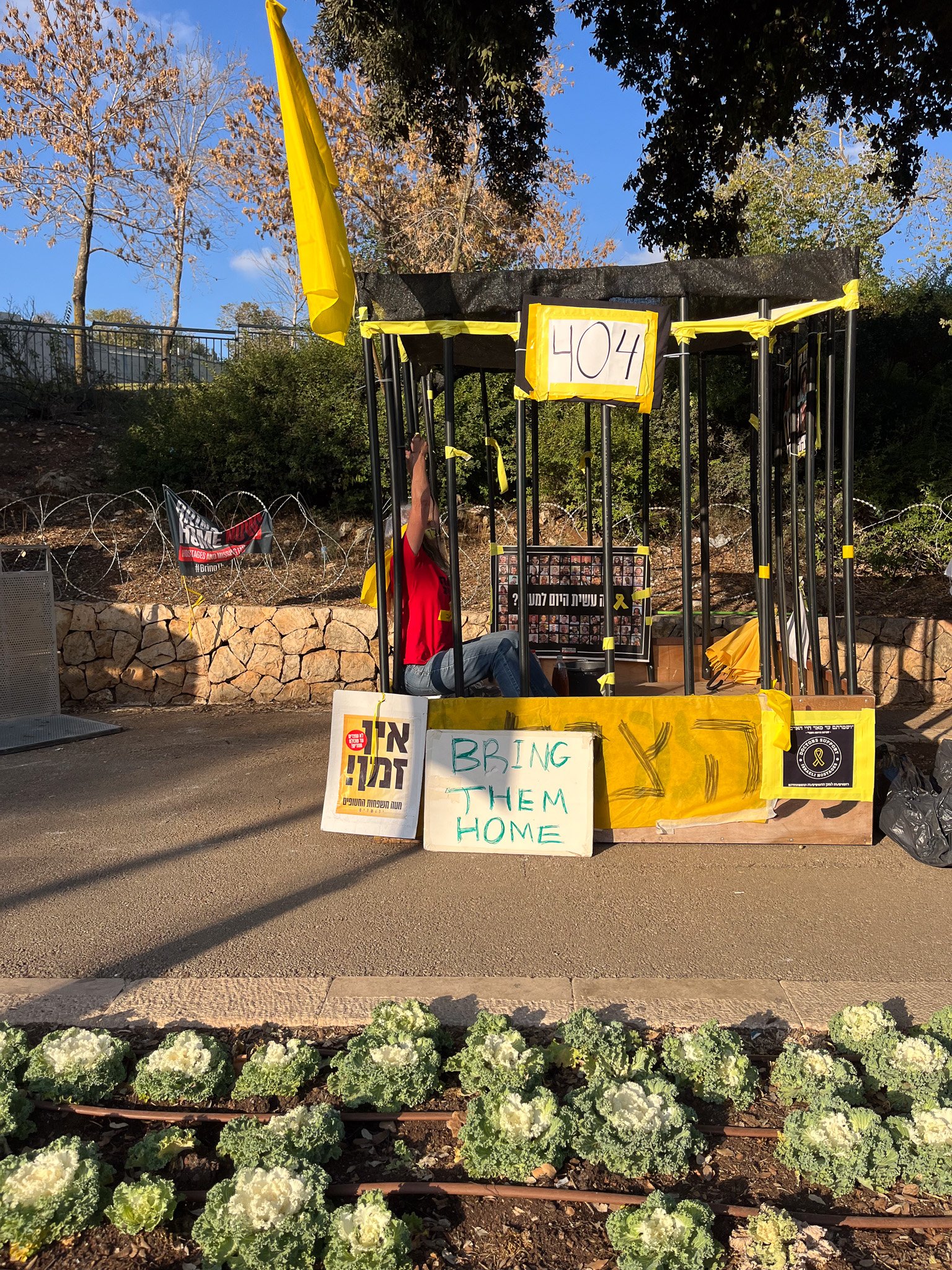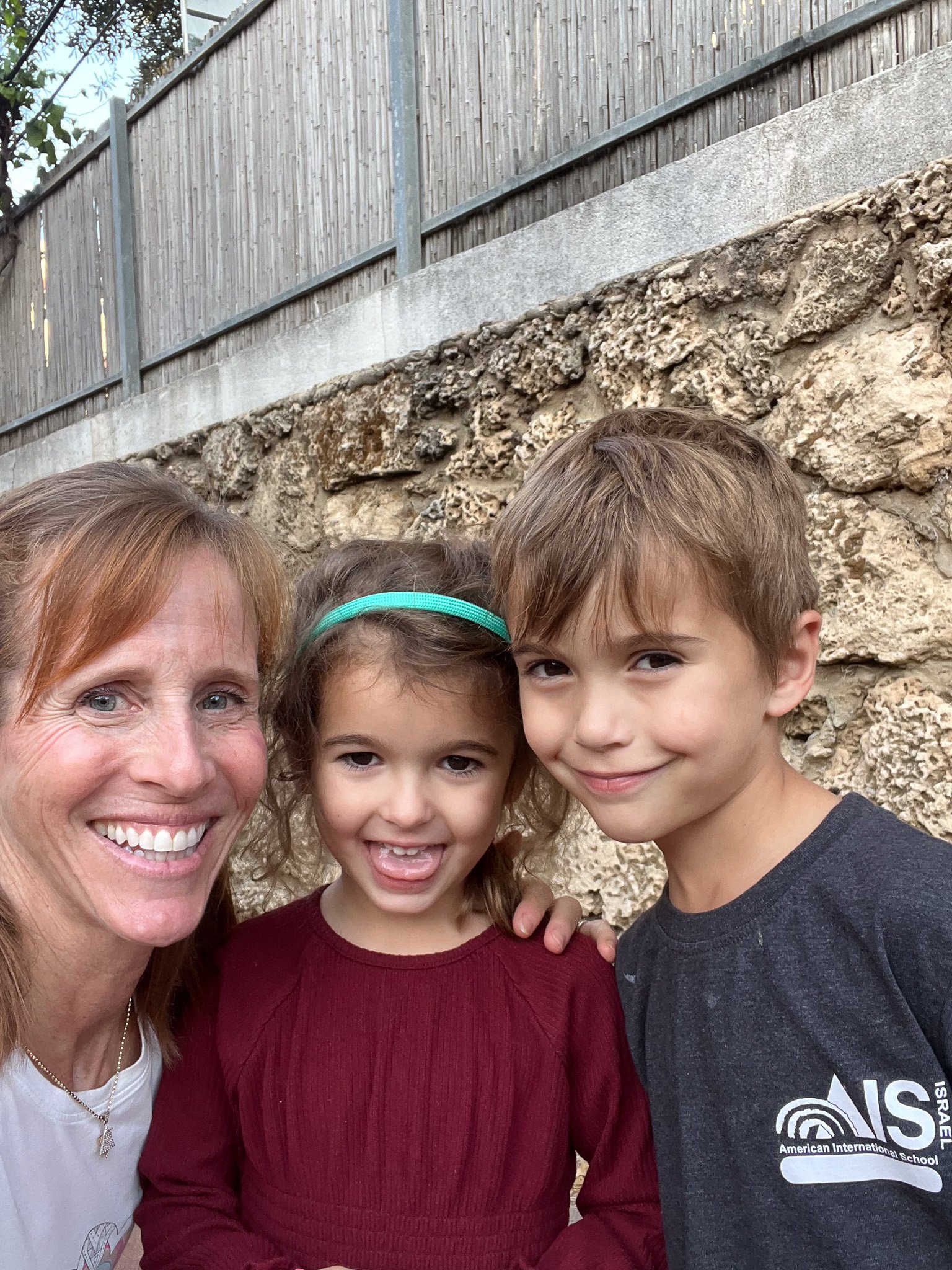When we left you last, we had spent a day touring the historic city of Antigua by foot and another day learning about the coffee farming community just outside of the city. Since then, in our final few days in Antigua, we hiked the volcano Pacaya (one of 37 volcanoes in Guatemala), visited an organic farming community that farms vegetables, bread, beautiful animals, and a butterfly garden, and participated in a reflective Shabbat service with our traveling companions and a special homemade Shabbat dinner by our hosts, David and Bethany Boran.
Each of these experiences was special and illuminating as we continued to reflect on the connection between what we have been experiencing in Guatemala and what we appreciate about Judaism. Judaism teaches us to look for holiness not only in familiar places, but wherever human beings are living with intention, memory, and care for one another. Sometimes, stepping outside our own community sharpens our understanding of what we hold sacred within it. So again, we thank you for supporting this sabbatical time for us as your rabbis.
Spending time immersed in the culture of Guatemala offers such a moment. While Guatemala and Judaism emerge from very different histories and geographies, the echoes between them are striking. Beneath the vibrant colors, ancient customs, and communal rhythms of Guatemalan life are values deeply familiar to Jewish tradition: memory, ritual, resilience, and community.
Memory sits at the center of Jewish life. We are commanded to remember—zachor—not only as an act of history, but as a moral and spiritual practice. As the Torah teaches, “Remember the days of old; consider the years of ages past” (Deut. 32:7). Memory in Judaism is meant to guide how we live now.
Guatemalan culture, particularly within indigenous Mayan communities, is also shaped by collective memory. Traditions are preserved through storytelling, ceremony, language, and art, even in the face of centuries of oppression and attempted erasure. Like Judaism, Guatemalan culture teaches that remembering is a way of surviving—and of honoring those who came before.
Judaism sanctifies time. Shabbat arrives each week as an island of holiness, reminding us to pause, to gather, and to reconnect with what matters most. The rabbis taught that more than the Jewish people have kept Shabbat, Shabbat has kept the Jewish people (Ahad HaAm)—a reminder that ritual sustains identity across generations.
In Guatemala, time is also marked with intention. Community rituals, religious festivals, and earth-honoring ceremonies create a rhythm that connects people to one another and to something larger than themselves. While the expressions differ, the impulse feels deeply Jewish: to slow down, to notice, and to live with awareness of the sacred.
Judaism imbues physical objects with spiritual meaning. A tallit is not simply a garment, but a reminder of mitzvot and responsibility. The tzitzit are meant to help us “remember all the commandments and do them” (Numbers 15:39).
Similarly, traditional Guatemalan textiles—especially huipiles—are rich with symbolism. Patterns and colors communicate identity, ancestry, and worldview. These garments tell stories, much like Jewish ritual objects do, reminding us that what we create and wear can carry holiness.
Jewish life is communal by design. We pray together, celebrate together, and mourn together. Many of our most sacred moments require a minyan, affirming the rabbinic insight that “All of Israel is responsible for one another” (Kol Yisrael arevim zeh bazeh). Guatemalan culture reflects this same understanding. Daily life is deeply communal, rooted in shared responsibility and mutual care. This emphasis on collective life resonates strongly with Jewish values, especially at a time when individualism can so easily pull us apart.
Both Jewish history and Guatemalan history include profound suffering. And yet, neither culture is defined solely by trauma. The prophet Isaiah speaks of a people who are “not destroyed” but renewed again and again—a vision that has sustained Jewish hope across centuries. Judaism blesses life—l’chaim—even after devastation. Guatemalan culture does the same through color, music, ritual, and an enduring connection to the land. In both traditions, survival is not only endurance, but renewal.
Encountering Guatemalan culture through a Jewish lens is not about drawing perfect parallels, but about deepening our appreciation for our own values. It reminds us that Judaism’s emphasis on memory, ritual, and community is not abstract—it is profoundly human. When we recognize holiness reflected in other cultures, we often come back to our own tradition with fresh eyes and renewed gratitude. In that sense, Guatemala becomes not just a place on the map, but a mirror—helping us see Judaism’s wisdom, beauty, and relevance more clearly. So once again, thank you for this time.
A closing blessing:
May our encounters with cultures beyond our own deepen our gratitude for the wisdom of our tradition.
May memory guide us, ritual ground us, and community sustain us.
And may we continue to recognize the image of God—in one another, in inherited traditions, and in the shared human longing for meaning and connection.
Ken yehi ratzon.


